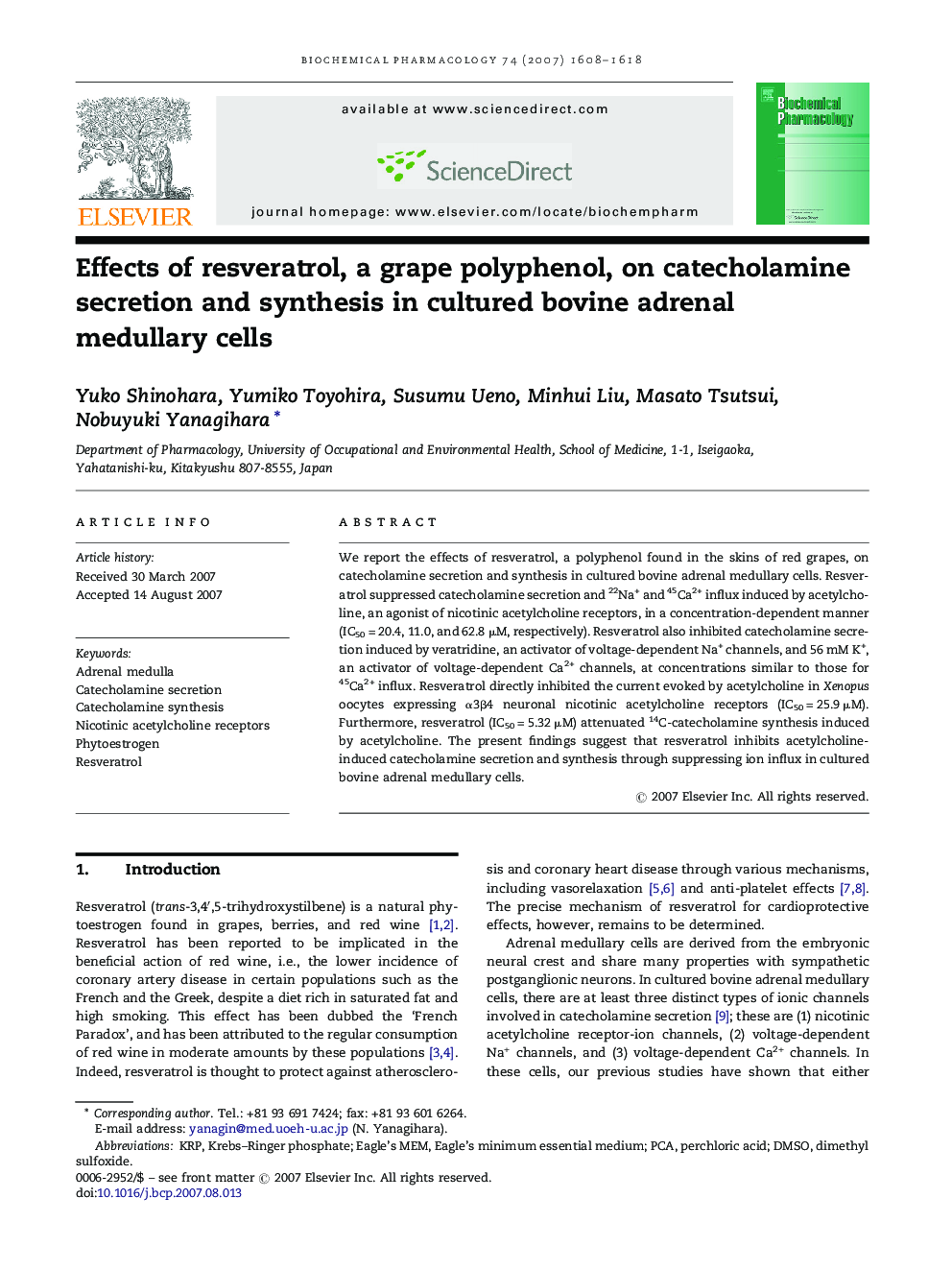| Article ID | Journal | Published Year | Pages | File Type |
|---|---|---|---|---|
| 2514680 | Biochemical Pharmacology | 2007 | 11 Pages |
We report the effects of resveratrol, a polyphenol found in the skins of red grapes, on catecholamine secretion and synthesis in cultured bovine adrenal medullary cells. Resveratrol suppressed catecholamine secretion and 22Na+ and 45Ca2+ influx induced by acetylcholine, an agonist of nicotinic acetylcholine receptors, in a concentration-dependent manner (IC50 = 20.4, 11.0, and 62.8 μM, respectively). Resveratrol also inhibited catecholamine secretion induced by veratridine, an activator of voltage-dependent Na+ channels, and 56 mM K+, an activator of voltage-dependent Ca2+ channels, at concentrations similar to those for 45Ca2+ influx. Resveratrol directly inhibited the current evoked by acetylcholine in Xenopus oocytes expressing α3β4 neuronal nicotinic acetylcholine receptors (IC50 = 25.9 μM). Furthermore, resveratrol (IC50 = 5.32 μM) attenuated 14C-catecholamine synthesis induced by acetylcholine. The present findings suggest that resveratrol inhibits acetylcholine-induced catecholamine secretion and synthesis through suppressing ion influx in cultured bovine adrenal medullary cells.
